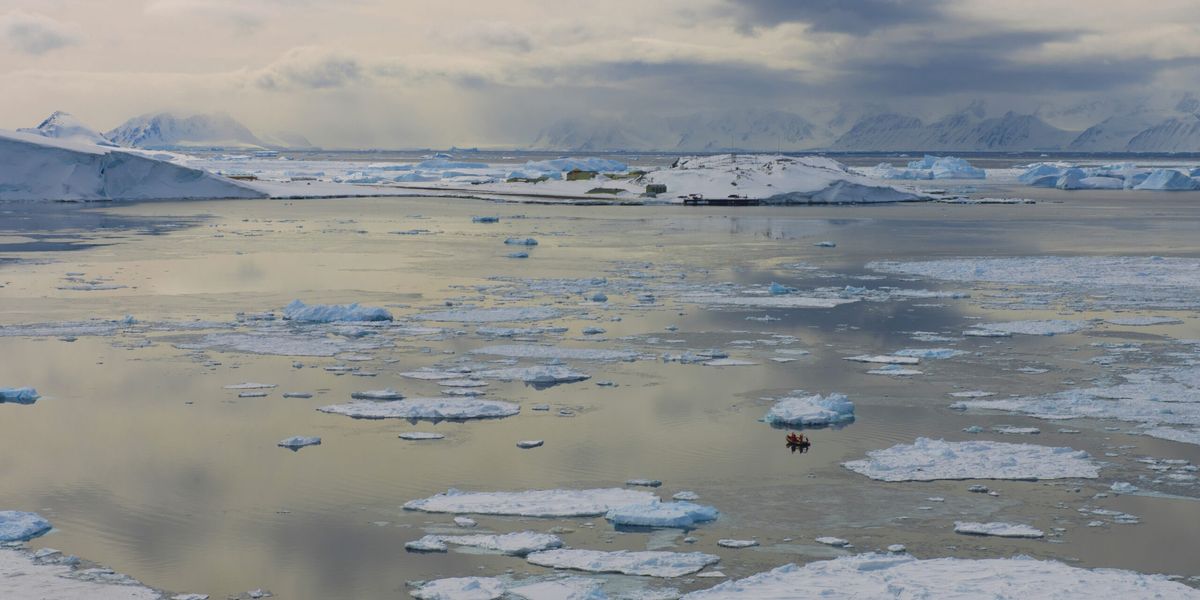As recent data from the European Union confirms historically high temperatures, a study by U.K. researchers cautions that human-induced global heating could result in rapid and catastrophic ice loss in Antarctica, similar to events that occurred thousands of years ago.
The research, published in Nature Geoscience by the British Antarctic Survey (BAS) and the University of Cambridge, relies on a 2,100-foot long ice core from the West Antarctic Ice Sheet.
Professor Eric Wolff of the University of Cambridge, the study’s senior author, emphasized the significance of direct evidence indicating rapid ice loss in the past. He warned that the same scenario could reoccur if instability affects parts of the ice sheet.
BAS researcher Isobel Rowell explained that the study aimed to understand the changes in the West Antarctic Ice Sheet at the end of the Last Ice Age when the Earth’s temperatures were rising, albeit at a slower rate than the current anthropogenic warming.
The team utilized ice cores to estimate the ice sheet’s thickness and extent during that time. By examining stable water isotopes and air bubble pressure in the core, they discovered a sudden and dramatic shrinkage of the ice sheet around 8,000 years ago.
Previously, models were uncertain about the timing of the ice thinning, with estimates ranging from 5,000 to 12,000 years ago, but the study provided a precisely dated observation that can improve existing models.
The West Antarctic Ice Sheet, vulnerable due to a significant portion resting on bedrock below sea level, experienced rapid melting triggered by warm ocean water 8,000 years ago, before stabilizing at its current size.
According to Wolff, previous models had not indicated the speed at which the retreat occurred, but their measurements revealed a rapid shrinkage of the ice once it thinned. He described this as a tipping point, emphasizing the importance of understanding whether additional warmth could destabilize the ice, leading to further retreat.
Glaciologist Ted Scambos from the University of Colorado Boulder commended the study as “an excellent piece of detective work” and highlighted the concerning message about the potential for rapid ice depletion in Antarctica.
The study aligns with mounting warnings about the condition of Antarctica, particularly regarding the rapidly melting Thwaites Glacier in West Antarctica. Another 2022 study dubbed the Thwaites Glacier as the “Doomsday Glacier” due to its potential catastrophic impact on sea-level rise.
A separate study also warned about the inevitable increase in melting of the West Antarctic Ice Sheet for the remainder of the century, highlighting the urgent need to address climate change and reduce reliance on fossil fuels.
Following the 28th United Nations Climate Change Conference in Dubai, which concluded without explicit support for a global phaseout of fossil fuels, scientists expressed disappointment with the resulting agreement.
Despite criticism directed at the United Arab Emirates for appointing a fossil fuel CEO to lead the conference, the upcoming COP29 host, Azerbaijan, intends to appoint an oil executive to head the next conference in November. Moreover, Azerbaijan plans to significantly increase its gas production over the next decade.
In light of this, Global Witness revealed that the oil and gas companies that pledged decarbonization at last year’s conference intend to consume roughly 62% of the world’s carbon budget by 2050, prompting calls for governments to implement more ambitious climate policies and resist pressure from polluting industries.












